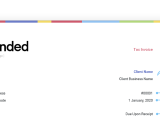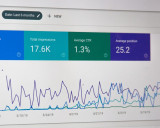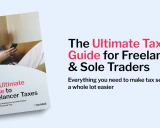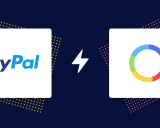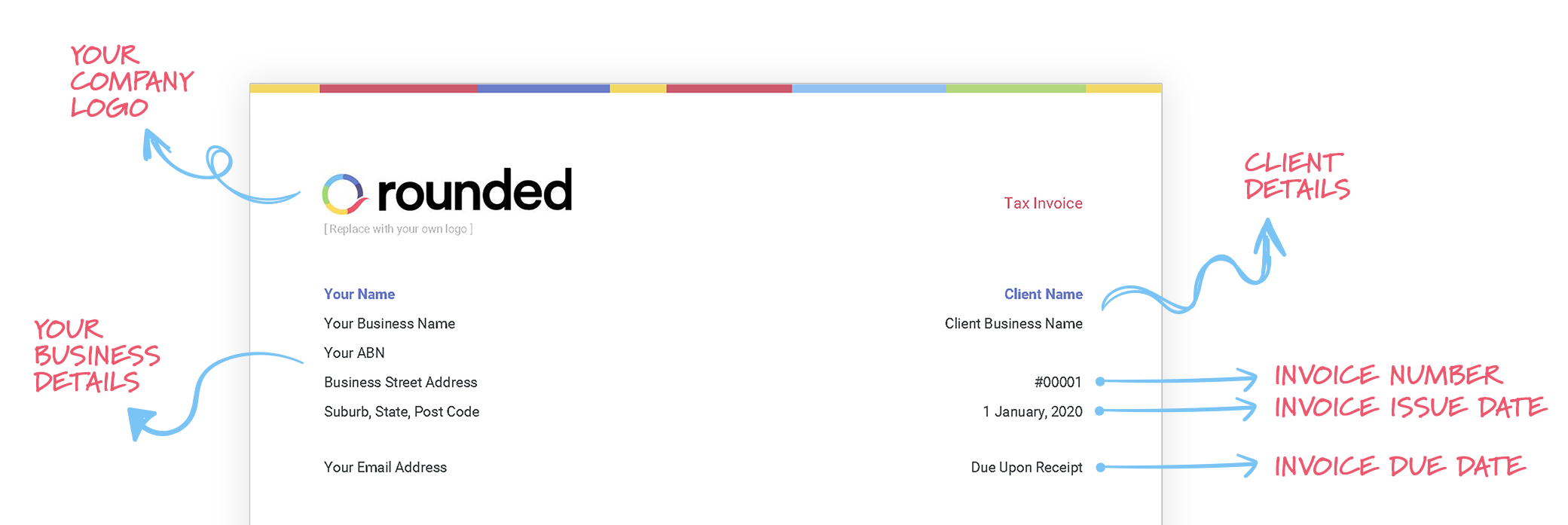
A guide to freelance niches with business coach Jessica Osborn
Do you really need a niche as a freelancer? Will niching down limit your business growth? And how do you find the right one? These are the questions most freelancers ask themselves when deciding to specialise. To help you make the best call, we sat down with the Niche Ninja herself, Jessica Osborn.
Article contents
− +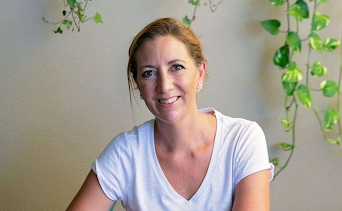
Jessica is a business and marketing coach with over 20 years of experience working for both local and global brands. She’s also created two successful online businesses in the past 10 years and hosts the weekly She’s The Business podcast.
Jessica specialises in helping female service-based business owners nail their niche strategy, align offerings to revenue goals, and implement simple marketing systems for consistent profitable growth.
Here’s what she had to say.
Why you need to niche down – especially in 2023
The generalist vs specialist debate has been going on for as long as people have been freelancing – Rounded founder Grant even wrote a blog containing his thoughts about it.
There are benefits to both approaches. But Jessica is a vocal advocate for specialising, and it’s not hard to see why.
Since COVID-19, we’ve seen an explosion of new freelancers and businesses crowding the online space. Rising costs of living and unstable traditional employment are also driving people to take on freelance work and side gigs en masse.
Without a niche, it’s easy to get lost in the mix and be seen as just another writer, designer, VA, or freelancer.
However, Jessica says this increase in competition isn’t the only reason you should niche down.
In fact, the main reason you should niche down in any market is that an in-depth understanding of what you do and who you serve is the foundation for all parts of your business, including:
What services you offer
Your pricing
Your marketing
As Jessica says, “I know exactly who [my clients] are, where I can find them, and what to say. I know what they’re going through, what they’re struggling with, and where they want to get to.”
This not only allows business owners to easily tailor their messaging to what their ideal clients care about, but also means less work!
When you target everyone, you waste time and brainpower coming up with the right offer, price, and pitch for each prospect – with no guarantee that they’ll convert.
Jessica uses the following analogy:
You’re not a one-size-fits-all voluminous piece of fabric – you’re a finely tailored evening dress that fits perfectly, a match made in heaven! And once you find that person who’s looking for the dress, the person who is specifically ideally matched to you in so many ways – BAM! They’re already sold.
What is a freelance niche?
There are a lot of misconceptions about freelance niches out there, especially for new freelancers and solo business owners.
“Often freelancers avoid choosing one of the types [of businesses] they could help because they fear not attracting enough clients … yet this is exactly WHY they’re struggling to attract the clients.”
Here’s a quick look at what a freelance niche is (and isn’t).

For those who are afraid of limiting themselves by niching down, consider this:
“You can’t attract without repelling. If you want to attract clients, you need to repel because there’s no way to attract without that opposite energy.”
Jessica goes into more depth in Episode 106 of the She’s The Business Podcast (What A Niche Really Is And What It Isn't) so go check it out if you want more information!
Why do so many freelancers struggle with deciding on a niche?
There’s actually a good reason why you may have put off really niching down and identifying your core offerings. According to Jessica:
“Niching goes against our core survival logic. Our brains tell us that if we go for a smaller part of the market, we’ll have fewer customers and less chance to grow our business.
And that’s why most of us approach freelance niches from the wrong perspective – we try to look at everything we can do, and everyone we can serve… and then get stuck in analysis paralysis trying to work out the ‘right’ one.”
So if you’ve struggled with finding your niche, you’re definitely not alone!
Have I chosen the right niche?
Most freelancers aren’t specific enough when choosing a niche. Here are some common signs you need to take another look.
Your inbound leads don’t have much in common
While you’re sure to get a few outliers, if there is no synergy between the people who are approaching you and enquiring about your services, you can safely guess your niche isn’t as well-defined as it could be.
You can’t describe your niche in 60 seconds or less
Many solo business owners may think that they know what their niche is, but struggle to articulate it when asked by a client or a fellow freelancer. If you fall back on generalised descriptions, it may be time to rethink.
You’re stuck with low-paying clients and work you don’t enjoy
Without clarity around your niche, you end up taking on projects that may not be the right fit or lowering your rate to attract more work. This ultimately makes freelancing a lot more difficult and less enjoyable than it needs to be.
You have a high bounce rate or low conversion rate on your site
If visitors to your freelancer website often leave shortly after arriving, this could potentially mean that it’s unclear what you do from your site alone. By getting more specific, you can help attract and move the right people forward.
How to create your freelance niche
Jessica has a simple 3-step process for helping her clients identify the best niche that aligns with their businesses.
Nail one of these, and you’re likely to see success. But get all three right and you’re golden!
What do you do?
This is the simplest place to start. Ask yourself:
Which types of projects do I enjoy working on the most?
What do I want to spend most of my work days doing?
What do I want to be known for?
If I were to win an award, which of my services would it be for?
Who do you serve?
This doesn’t have to be based on your current client lineup. Ask yourself:
Who would my expertise best serve?
What industry/career experience can I leverage?
What kinds of clients would I like to work with?
What’s your special sauce?
No two humans are the same. What unique skills, experiences, or talents can you bring to your ideal client?
For more guidance on how to answer these questions, check out our guide to creating a standout USP.
Time to test your niche!
Your niche should be clear to both yourself and your audience, since they need to know that you’re the ideal freelancer to help with their problems.
Here are 2 quick litmus tests to see if your niche is clear and well-defined:
Write your elevator pitch.
Can you explain what you do to a stranger in 60 seconds or less?
Ask around.
Can someone else clearly summarise what you do and who you serve? For best results, try asking current clients or members of your ideal audience.
What if a client needs more services outside of your niche?
You've been working for a good client for a while and identify that they have a need you can’t service. Should you pass on the work to someone else, or up-skill and add it to your offering?
Jessica says that 9 times out of 10, she would refer them to another freelancer or specialist in her network.
Staying in your specialisation is smarter because that’s where you’re operating at your highest value. If you start to broaden out your offerings, you're adding more back-end processes, more unbillable time in admin and maintenance, and also the brain load of context switching.
She adds that while it may seem like a great idea to gain additional revenue from someone who trusts you, it rarely works out best in the long run.
Becoming the jack of all trades means you stay in the zone of the 'employee' while shifting into the shoes of the CEO (even if you're a business of one person) means you're the one taking the lead to decide where your energy goes. When you have that authority from being a specialist, you can choose the best clients.
But what about that 1 time out of 10?
I would say the only time you should say yes to offering that new service is if it's simple, a clear profit leader, can be systemised, and doesn't take you away from higher earning work.
She does mention that freelancers may also say yes if they’ve decided they want to pivot their business, since this can be a good opportunity to test new offerings with a trusted client.
Need help finding your niche?
For more information about finding your freelance niche and other great marketing tips, make sure to check out Jessica’s podcast She’s The Business. With new episodes released every week, there’s always something new to learn.
If you need a bit more hands-on guidance, Jessica’s signature program Business JAM goes in-depth on niche strategy and how to get clarity on who your ideal clients are.
You can also follow Jessica on Instagram, Facebook, LinkedIn, or YouTube.
Contents
Join newsletter
ABOUT ROUNDED
Invoicing and accounting software for sole traders. Get paid faster and relax at tax time.
